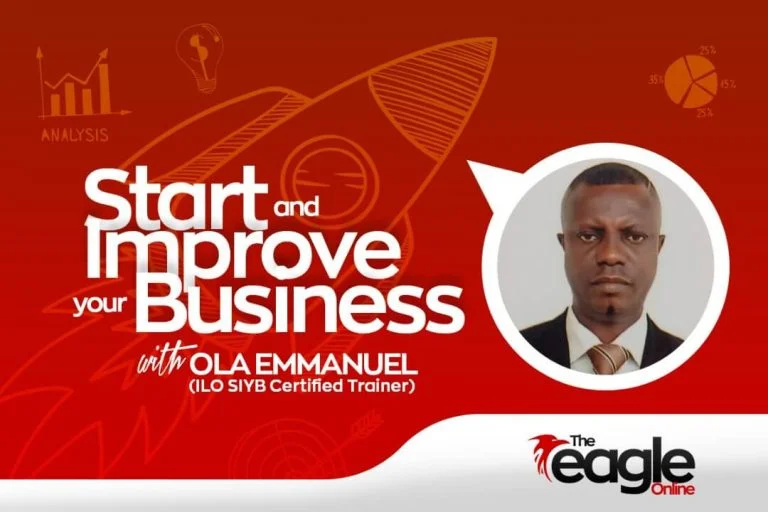Kelechi had it easy throughout the three decades he had spent on the face of the earth. Born into a well-to-do family, his education from the early years to the first and second degrees, was without any hassle. Born in Lagos to business owner-parents, and unlike his school colleagues, he was saved the challenge of having to worry about how and where to secure a job. His father owned an agro-allied company where he served as the executive chairman while his mother occupied the managing director position of the same company. Being a family business, Kelechi had no problem having a place in the company. Immediately after his youth service he joined the marketing department and was one of the team members directly in charge of sourcing raw materials for the company’s production lines.
Six years in the department, Kelechi believed he had gained enough experience and it was time for him to pull out of the family business and start his own company. He chose to weave his business around where he had experience in the agro allied business by leveraging on the contacts he had made and the experience he had garnered to do things better in such a way that instead of allowing middlemen to take care of his orders, he would go direct to the farm gates and deal with the farmers. With this strategy, his profit margins would be adequate to make him a great entrepreneur if he remained a produce supplier to agro-processing companies.
Kelechi’s experience on the first business trip was one he would never forget: and he never made the second trip. A soft, Lagos boy with little or no street experience and who had never travelled on rough farm roads throughout his school years and the six years he spent in his parents’ business, his first and only trip to the farms to deal directly with the farmers left him broken and without any will to continue with the business the way he had planned it. Not only was the journey to the farm very unpleasant by having to travel with the trucks loaded with the produce, his encounter on the way back, well sandwiched with bags of grains, and the constant stoppages and harassments on the road-checkpoints almost at every kilometre by the various law enforcement personnel ranging from the police to several others, drained him of whatever strength he had. Kelechi had to part with money at every checkpoint after hours of pleadings and delays; and had to sleep by the roadside with the driver and the truck load.
Clearly, Kelechi did not have sufficient skills and knowledge of his chosen line of business. What he came across on the road was beyond his skills-set and what his personality could cope with. Definitely he would have carried out skills analysis before he opted for the line of business and his operational strategy, but his analysis was deficient. He was not prepared for what obtained (the normal) in his business. The roads were rough (which is a normal) and coping with the men-in-uniforms as well as parting with money – another normal in his line of business – were beyond his capacity. Both his hard and soft skills were not adequate nor sufficient for the kind of business he chose to do.

Doing good and sustainable business is about strategy, complex problem solving, emotional intelligence, critical thinking, people management as well as creativity. These are part of the skills required for contemporary business. You call this soft skills; i.e. attributes or traits that influence how well you can interact with your business environment and the people in it. They are the skills that enable you attract clients, attract patronages, retain customers and enjoy doing business. This is besides the skills that are primary to starting the business; i.e. known as the hard skills. The hard skills consist of technical capacity, business management skills, experience in the line of business, and communication skills. As an example, a technical skill is the practical ability required to produce the product or render the services you want to sell to customers. For example, a business centre operator should have good knowledge of computer, desktop operation, and ability to use some software packages like page-maker or corel-draw, and be able to operate photocopy machines, clear paper jams and carry out minor adjustments to equipment he uses in the business. A person with this technical ability will do better in the business than the person who doesn’t have any of such technical idea but will have to rely on engineers to perform minor issues that may arise.
With the detailed explanation above, it is clear that doing business requires serious preparations before you can commence any business. Hopefully, we shall go into treating each of the skills better in the next piece.
. Ola Emmanuel is a business planning and cooperative consultant. He works with a team of international consultants to conceptualise and plan agribusiness and housing projects. As a certified trainer authorised to use the International Labour Organisation’s enterprise development modules, he trains entrepreneurs and organises workshops and seminars for potential and practising entrepreneurs as well as business managers and cooperatives. He also speaks and facilitates at leadership and management workshops on invitation. His book, Business Planning Made Easy: Step by Step Guide On How To Turn Your Idea To Profitable Business’ is the latest of the books authored by him. Tel: +234(0)9068602954 (call and sms), +234(0)8023257707 (whatsApp only).


